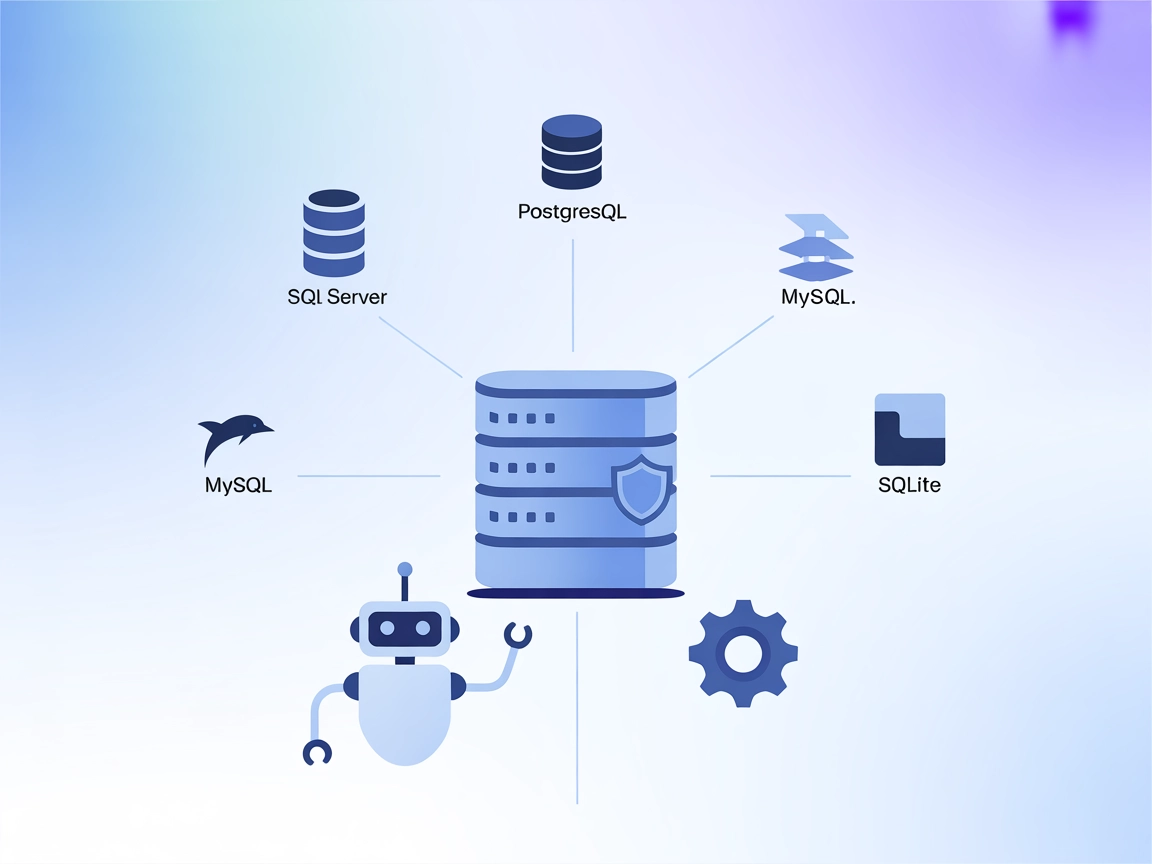
Model Context Protocol (MCP) Server
The Model Context Protocol (MCP) Server bridges AI assistants with external data sources, APIs, and services, enabling streamlined integration of complex workfl...

Reaper MCP Server enables AI-powered analysis, searching, and automation for Reaper audio project files, streamlining workflows and boosting productivity for audio professionals.
FlowHunt provides an additional security layer between your internal systems and AI tools, giving you granular control over which tools are accessible from your MCP servers. MCP servers hosted in our infrastructure can be seamlessly integrated with FlowHunt's chatbot as well as popular AI platforms like ChatGPT, Claude, and various AI editors.
The Reaper MCP Server is a Model Context Protocol (MCP) server designed to connect AI assistants with Reaper project files, enabling enhanced workflows for audio production and project management. By integrating with clients like Claude Desktop, it allows users to query and interact with their Reaper projects through natural language. The server exposes tools to discover and parse Reaper project files, making it possible for AI systems to access structured data about audio sessions. This capability streamlines tasks such as project searching, metadata extraction, and detailed analyses, ultimately boosting productivity for developers and audio professionals working with Reaper.
No prompt templates are mentioned in the repository or documentation.
No explicit MCP resources are listed in the repository or documentation.
No setup information or configuration examples for Windsurf are provided.
uv venvsource .venv/bin/activateuv pip install .setup/claude_desktop_config.json.uv installation, Reaper project directory, and this server’s directory.find_reaper_projects and parse_reaper_project tools appear.JSON Configuration Example:
{
"mcpServers": {
"reaper-mcp": {
"command": "uv",
"args": ["pip", "install", "."]
}
}
}
No setup information or configuration examples for Cursor are provided.
No setup information or configuration examples for Cline are provided.
Securing API Keys
No guidance or examples for securing API keys are provided in the repository.
Using MCP in FlowHunt
To integrate MCP servers into your FlowHunt workflow, start by adding the MCP component to your flow and connecting it to your AI agent:

Click on the MCP component to open the configuration panel. In the system MCP configuration section, insert your MCP server details using this JSON format:
{
"reaper-mcp": {
"transport": "streamable_http",
"url": "https://yourmcpserver.example/pathtothemcp/url"
}
}
Once configured, the AI agent is now able to use this MCP as a tool with access to all its functions and capabilities. Remember to change “reaper-mcp” to the actual name of your MCP server and replace the URL with your own MCP server URL.
| Section | Availability | Details/Notes |
|---|---|---|
| Overview | ✅ | Overview and description available in README.md |
| List of Prompts | ⛔ | No prompt templates are mentioned |
| List of Resources | ⛔ | No MCP resources listed |
| List of Tools | ✅ | find_reaper_projects, parse_reaper_project |
| Securing API Keys | ⛔ | No explicit information provided |
| Sampling Support (less important in evaluation) | ⛔ | No information about sampling support |
Based on the two tables above, the Reaper MCP Server offers strong tool support and clear setup instructions for Claude Desktop, but lacks information on prompts, resources, and advanced MCP features like sampling and roots. Its documentation is straightforward but limited in scope to the basics.
Rating: 5/10
| Has a LICENSE | ✅ (MIT) |
|---|---|
| Has at least one tool | ✅ |
| Number of Forks | 7 |
| Number of Stars | 40 |
The Reaper MCP Server connects AI assistants to Reaper project files, enabling tools for discovering projects and extracting structured data, which improves searching, analysis, and workflow automation in audio production.
It offers two main tools: find_reaper_projects (for discovering all Reaper project files in a directory) and parse_reaper_project (for extracting structured JSON data from a given project file).
Use cases include discovering audio projects, extracting project metadata, enabling AI-assisted project analysis, automating workflows, and supporting collaborative audio production.
Add the MCP component to your flow, open its config panel, and insert your server details using the provided JSON format. Update the server name and URL to match your MCP instance.
No explicit API key setup or security instructions are provided in the documentation.
The Reaper MCP Server is released under the MIT license.
The documentation is clear on setup and tool usage but lacks detailed information on advanced MCP features, prompt templates, and API security.
Boost your audio production workflows by connecting your AI agents to Reaper projects using the Reaper MCP Server.

The Model Context Protocol (MCP) Server bridges AI assistants with external data sources, APIs, and services, enabling streamlined integration of complex workfl...

The ModelContextProtocol (MCP) Server acts as a bridge between AI agents and external data sources, APIs, and services, enabling FlowHunt users to build context...

The MCP Database Server enables secure, programmatic access to popular databases like SQLite, SQL Server, PostgreSQL, and MySQL for AI assistants and automation...
Cookie Consent
We use cookies to enhance your browsing experience and analyze our traffic. See our privacy policy.